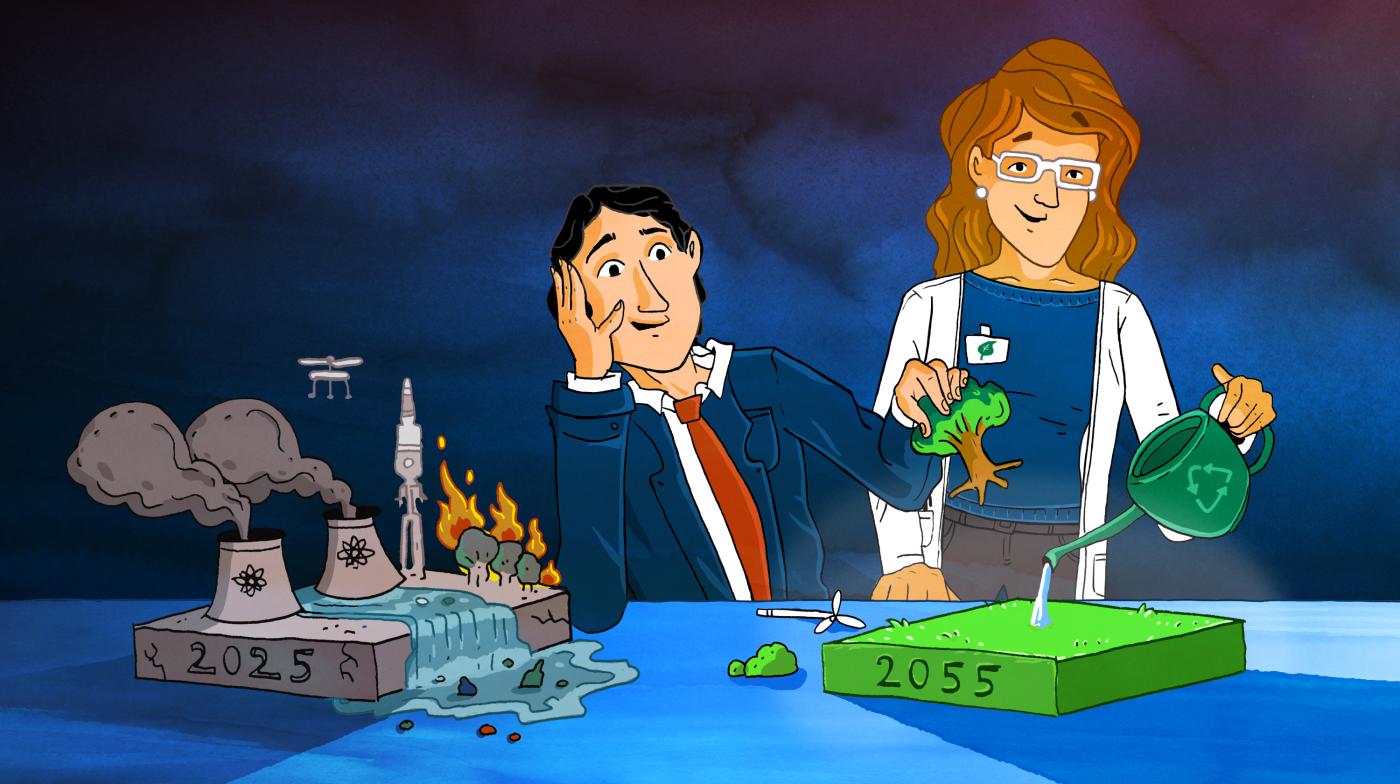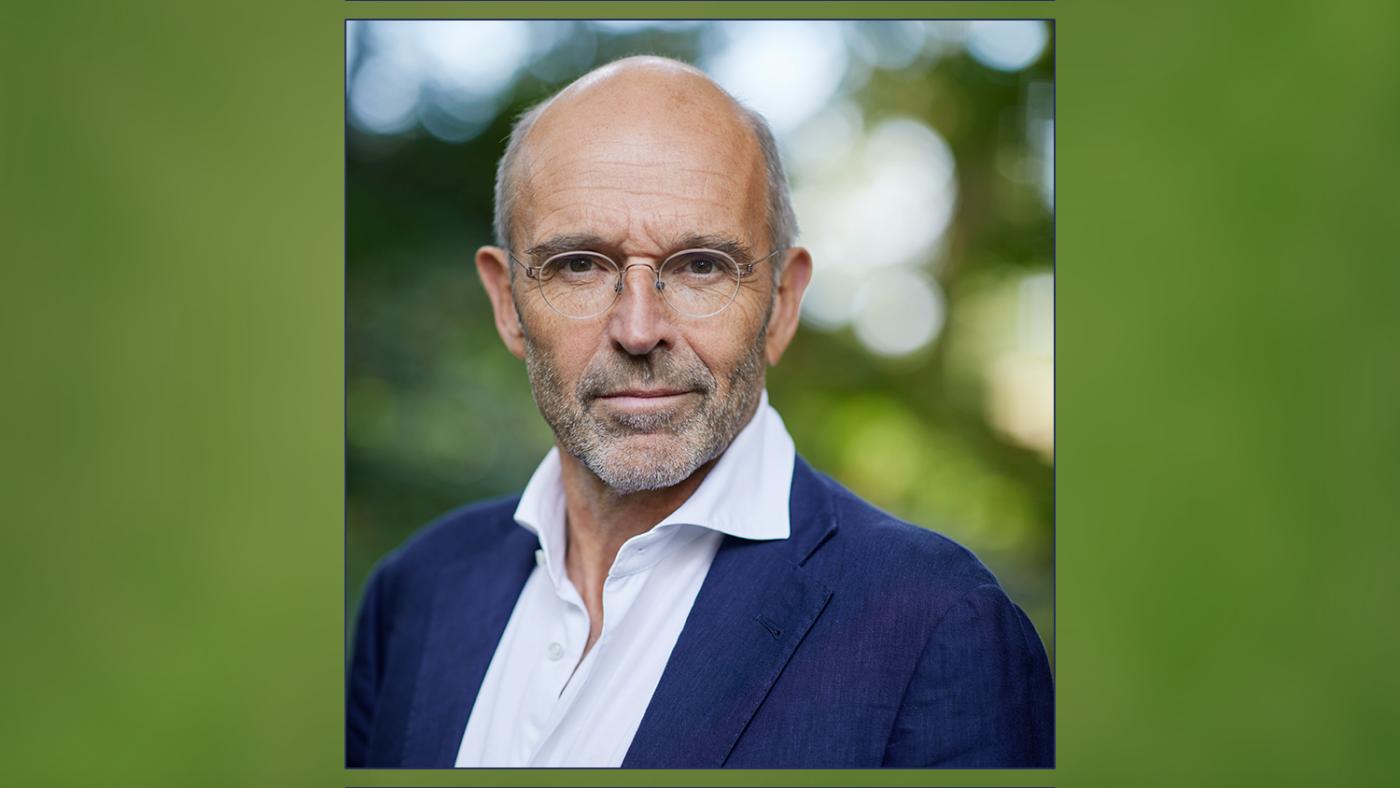UU scientists talk politics, part 1: Urban planner Maarten Hajer
'We can only save climate policy with more imagination'

Scientists have successfully drawn attention to the climate crisis, but so far, no scientist has managed to bring about a radical change in policy, enforcing a complete phase-out of fossil fuels.
Even a rockstar scientist like Johan Rockström, from Sweden, has failed to do so. His planetary boundaries framework makes it very clear that the planet has already exceeded the limits in several system components and can no longer recover on its own.
Maarten Hajer and Jeroen Oomen are a professor and an associate professor in Urban Futures at Utrecht University, respectively. Their latest book, Captured Futures - Rethinking the Drama of Environmental Politics, argues that climate politics is currently at a standstill.
According to the authors, there are two reasons for this. The most obvious reason is the powerful lobby by groups that do not seem to benefit from stricter climate policy. ‘Interest groups in the Netherlands are very close to politics. So much so that government ministers are often recruited from those groups,’ explains Hajer.
Scientific insights have remained relatively unchanged in recent years. ‘We have known for forty years that we have an agricultural crisis, although we used to talk about acid rain, ammonia and eutrophication, and now we talk about nitrogen. But the scientific essence is still the same.’
The second cause, still according to Hajer and Oomen's book, has to do with a ‘crisis of imagination.’ Hajer: ‘People cannot imagine alternatives. The timeframe for saving the climate is extremely short, and there is little room for developing effective solutions. As a result, we are trapped, as it were.’
'People can imagine alternatives'
According to Hajer and Oomen, climate politics, like many other political issues, has a highly theatrical content with dramatic effects, such as the target stipulated by the Paris Agreement to limit global warming to 1.5 degrees Celsius, or the goal of achieving a zero-emission society by 2050.
Although scientists like Rockström know how to make good use of these dramatic techniques, this is not enough to enforce change. ‘Rockström is a brilliant actor in the wrong play. He is very creative and persuasive, urging politicians to heed science and take action. But that's not how politics works.’
This same dramatic approach can be used effectively to devise alternatives that appeal to the imagination, they argue. ‘We call for a step towards liberation, for sketching out an alternative future and making it political.’
This requires a cultural revolution, Hajer believes. Although many people claim that it is very complicated to change the course of a society, he argues that this has happened recently, with the rise of neoliberalism and right-wing populism. ‘This shows that values can change quickly. We just need to change in the other direction.’

Maarten Hajer. Foto: Christiaan Kouwels
‘We need to formulate what such a sustainable society could look like.’
According to Hajer, there are signs that such a change is happening. ‘Central banks and insurance companies realise that we cannot continue to pass on the risks of climate change, such as flooding, drought or biodiversity loss, to nature. If nature can no longer cope, those risks become uninsurable.’
On the other hand, the current political situation in the Netherlands and Europe gives him little hope. ‘The European Union and even GroenLinks-PvdA (the alliance between the Dutch left-wing parties Green Left and Labour Party, Ed.) are scaling back their ambitions. Which market player will still invest in green solutions?’
Hajer wants to make a start when it comes to such an alternative future. ‘We need to formulate what such a sustainable society could look like, how we would live. How happy and prosperous we could be. How much more peace we could have in our daily lives.’
After all, Hajer believes that, to find solutions, one needs to look beyond the climate and consider many other aspects of modern society. ‘Strangely enough, if you want to solve certain problems, you have to make them more complex. We need to link the climate issue to other issues, such as the significant number of employees who are absent from work due to illness or burnout.’
Hajer believes that the exploitation of nature and workers is interrelated. 'Everyone has to work hard to pay for a mortgage and childcare. We would do well to think more carefully about which professions are valuable. In this way, we can sketch out a socio-ecological future in which we create more peace and well-being. What would that look like? Such a picture can convince people. They will start to think: "Why don't we do it this way? And then politicians will follow suit."'
‘We need people who can visualise’
Hajer challenges students and policymakers to create such visions of the future and make them visual and tangible. To this end, Hajer's Urban Futures Studio organises an annual Mixed Classroom that concludes with an exhibition. Last year, four different scenarios for the year 2054 were presented there. This successful approach has even won a Higher Education Award for its innovative approach to education, which combines science and practice.
In 2027, the studio wants to organise a national exhibition outside the walls of the university. Hajer: ‘I want to mobilise professionals to further the political debate. People who can draw and visualise are crucial for this. Hopefully, this will create a social movement that says that things cannot go on like this. Everyone must take action now inside their own institutions and spheres of influence.’
About the Scientists Talk Politics series
In the run-up to the Dutch parliamentary elections, DUB offers three UU researchers the opportunity to discuss how their research connects with politics in the Netherlands.
- Urban planner Maarten Hajer on climate politics
- Criminal lawyer Joep Lindeman on criminal politics
- Sociologist Marguerite van den Berg on vulnerability in politics
Comments
We appreciate relevant and respectful responses. Responding to DUB can be done by logging into the site. You can do so by creating a DUB account or by using your Solis ID. Comments that do not comply with our game rules will be deleted. Please read our response policy before responding.